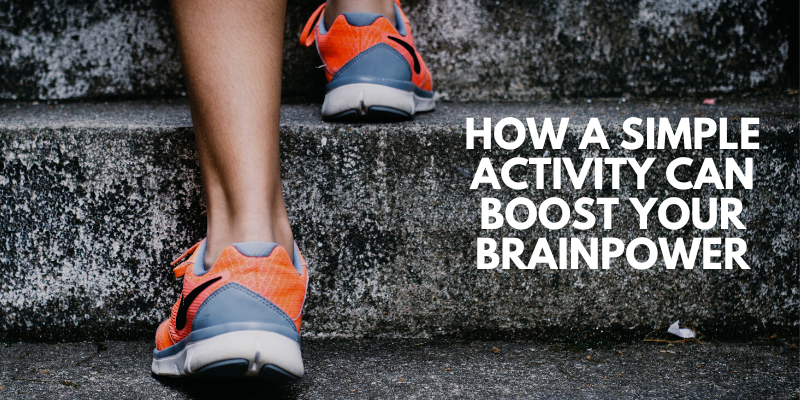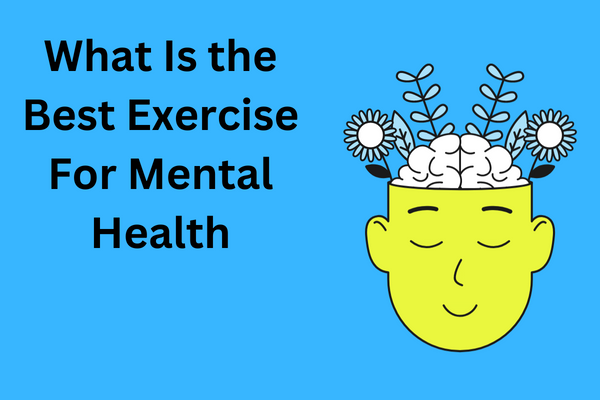Mental Benefits of Walking: How a Simple Activity Can Boost Your Brainpower

Do you want to know the mental benefits of walking? Walking is often considered to be one of the simplest forms of exercise that can be done without any special equipment. Many people take up walking as a way to stay fit and healthy, but not many are aware of the mental benefits of walking. In this article, we will explore the ways walking can boost your brainpower and improve your overall mental health.
Introduction
Walking is often thought of as a simple and straightforward form of exercise, but it has a wide range of benefits that go beyond just physical fitness. One area where walking can have a significant impact is on mental health. Numerous studies have shown that walking can improve mood, reduce stress and anxiety, boost cognitive function, and even reduce the risk of developing certain mental illnesses.
Whether you’re looking for a way to improve your mental health or just want to enjoy a leisurely stroll through the park, walking is an easy and accessible activity that can provide a variety of mental benefits. In this article, we will explore some of the ways that walking can positively impact mental health and how you can incorporate walking into your daily routine to start reaping the rewards.. In the following sections, we will delve deeper into each of these areas.
Walking Improves Cognitive Function
Research has shown that walking can have a positive impact on cognitive function. Walking has been linked to improved memory, attention, and creativity. In fact, a study conducted by the University of Illinois found that walking for as little as 40 minutes a day can improve cognitive performance.
Walking has also been shown to have a positive impact on the hippocampus, a region of the brain that plays a critical role in memory formation. A study conducted by the University of British Columbia found that regular aerobic exercise, such as walking, can increase the size of the hippocampus, leading to improved memory and cognitive function.
Walking Reduces Stress and Anxiety
Walking is also an effective way to reduce stress and anxiety. When you walk, your body releases endorphins, which are natural mood-boosters. Additionally, walking has been shown to reduce cortisol levels, a hormone that is released in response to stress.
Walking in nature can have even greater benefits for mental health. A study conducted by Stanford University found that walking in nature can lead to a decrease in activity in the part of the brain that is associated with depression.
Walking Enhances Mood and Self-Esteem
Walking has been shown to enhance mood and improve self-esteem. As mentioned earlier, walking releases endorphins, which can boost mood. Additionally, walking has been shown to increase feelings of self-esteem and self-worth.
Walking in a group or with a pet can have additional benefits. Walking in a group can enhance social connections, which can also have a positive impact on mental health. Similarly, walking with a pet can lead to increased feelings of happiness and well-being.
Walking Promotes Better Sleep
Walking can also promote better sleep. A study conducted by the National Sleep Foundation found that people who engaged in moderate-intensity exercise, such as walking, reported better sleep quality than those who did not exercise.
Walking can also help regulate circadian rhythms, which are the body’s natural sleep-wake cycles. By walking regularly, you can help establish a regular sleep-wake cycle, leading to better sleep.
Walking as a tool for mindfulness and meditation
Walking can also be used as a tool for mindfulness and meditation. The rhythmic motion of walking can help clear the mind and reduce stress, allowing you to be fully present in the moment. Walking can also be a form of active meditation, where you focus on the sensations in your body and the world around you.
By paying attention to your breath and the movement of your body, you can cultivate a sense of inner peace and relaxation. Incorporating walking into your mindfulness and meditation practice can enhance its effectiveness and help you reap even more mental health benefits.
How to incorporate walking into your daily routine
Incorporating walking into your daily routine can be challenging, especially if you have a busy schedule. However, by following these simple tips, you can make walking a regular part of your daily routine. Firstly, it is essential to set achievable goals for yourself. This can include walking for a certain number of minutes each day or aiming for a certain number of steps.
Once you have set these goals, you can then make walking a habit by scheduling it into your daily routine. This can include taking a walk during your lunch break or going for a walk after dinner. Lastly, it is important to track your progress to stay motivated.
You can do this by using a fitness tracker or simply keeping a journal of your daily walks. By following these tips, you can make walking a regular part of your daily routine and reap the mental health benefits that come with it.
What Is the Best Exercise For Mental Health?

When it comes to improving mental health through exercise, there are a variety of options available. However, some exercises may be more effective than others. Here are some of the best exercises for mental health:
- Walking: This low-impact exercise is great for reducing stress, anxiety, and depression. It’s also an easy way to incorporate more physical activity into your daily routine.
- Yoga: Yoga combines physical postures with breath work and meditation, making it an effective way to reduce stress and improve mood.
- Aerobic exercise: Activities like running, cycling, or swimming can be great for boosting mood and reducing symptoms of anxiety and depression.
- Strength training: Building muscle through weight lifting or bodyweight exercises can improve self-esteem and confidence, which can have a positive impact on mental health.
- Mindfulness meditation: While not a physical exercise, mindfulness meditation has been shown to reduce symptoms of anxiety and depression, and improve overall well-being.
Ultimately, the best exercise for mental health is one that you enjoy and can stick with consistently. So, try out different types of exercise and see what works best for you!
Does Walking Reduce Mental Stress?
What Is the Best Exercise For Anxiety and Depression?
How Long Should I Walk To Be Happy?

What Are 5 Mental Illnesses That Are Reduced By Exercise?
Exercise is a powerful tool that can help improve both physical and mental health. Here are five mental illnesses that can be reduced by exercise:
- Depression: Exercise has been shown to increase the production of endorphins, which are natural mood boosters. Regular physical activity can also improve self-esteem, promote better sleep, and reduce feelings of anxiety and stress.
- Anxiety disorders: Exercise is a great way to reduce symptoms of anxiety disorders. It helps to release tension and pent-up energy, which can help to reduce feelings of restlessness and agitation. Exercise can also improve concentration, reduce fatigue, and promote relaxation.
- Bipolar disorder: Regular exercise can help to reduce the severity and frequency of mood swings in people with bipolar disorder. It can also help to reduce symptoms of anxiety and improve overall quality of life.
- Schizophrenia: Exercise can help to reduce the severity of symptoms in people with schizophrenia, such as hallucinations and delusions. It can also improve social functioning and reduce feelings of isolation and loneliness.
- Post-traumatic stress disorder (PTSD): Exercise has been shown to be an effective way to reduce symptoms of PTSD, such as flashbacks and nightmares. It can also help to improve mood and reduce feelings of anxiety and depression.
In summary, exercise is a powerful tool that can help to reduce symptoms of many mental illnesses. Incorporating regular physical activity into your daily routine can have a positive impact on your mental health and overall well-being.
Frequently Asked Questions
Q: How much walking do I need to do to see mental benefits?
A: Walking for at least 30 minutes a day can have mental health benefits, but even shorter walks can be beneficial.
Q: Can I walk indoors on a treadmill and still get the same benefits?
A: Walking on a treadmill can provide similar mental health benefits to outdoor walking, but walking in nature can have additional benefits.
Q: How often should I walk to see mental health benefits?
A: Walking regularly, even a few times a week, can have mental health benefits.
Q: Can walking help with symptoms of depression?
A: Yes, walking has been shown to reduce symptoms of depression and anxiety.
Q: Can walking in a group be more beneficial than walking alone?
A: Yes, walking in a group can enhance social connections and improve mood and self-esteem.
Conclusion
In conclusion, walking is a simple yet highly effective exercise that offers a wide range of mental health benefits. From reducing stress and anxiety to boosting mood and improving cognitive function, the benefits of walking cannot be overstated. With regular physical activity, you can improve your overall well-being and lead a healthier, more fulfilling life.
Whether you prefer to take a leisurely stroll around the neighborhood or go for a brisk walk in the park, incorporating walking into your daily routine is a great way to support your mental health. So why not lace up your sneakers and hit the pavement? Your mind (and body) will thank you.


